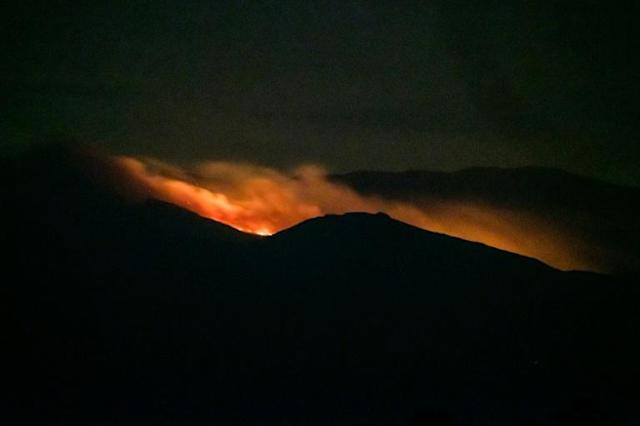Fire Fighters Extinguish Kenya Forest Blaze
A fire that raged for two days in Kenya’s Aberdare National Park has been extinguished after burning through hundreds of hectares of wilderness, a government forest official said on Monday.
The blaze started Saturday and dozens of forest rangers, firefighters and volunteers had struggled to control the fire from spreading, as suspicions of arson emerged.
The park was etched in history when Britain’s Elizabeth II, then a princess on a 1952 visit to Kenya, received news of her father’s death while staying at the Treetops hotel, a remote game-watching lodge built high into a tree in the Aberdare forest.
“The fire is completely suppressed,” Samuel Ihure, the regional head of the Kenya Forest Service, told AFP, adding that roughly 600 hectares (1,480 acres) of bushland was torched.
Rhino Ark, a conservation charity in Kenya, earlier said it had sent in helicopters to conduct aerial surveys of the area to estimate the extent of damage to the forest cover.
“Thirty-five trained firefighters have been deployed by chopper on the southern fireline,” the group said on Twitter Monday.
“We have firefighters who are doing a decent job up there. So far so good, they are managing to control it but it has not been completed,” Rhino Ark official Adam Mwangi told AFP.
“Definitely it is a fire caused by human activities,” Mwangi said, as speculation mounted about the possibility of arson.
The park lies some 100 kilometres (60 miles) north of the capital Nairobi in the Aberdare mountain range.
It is home to spectacular waterfalls and lush bamboo jungles as well as a variety of wildlife including leopards, elephants and critically endangered black rhinos.
The Aberdares are the third highest mountain range in Kenya, reaching a summit of just over 4,000 metres (over 13,100 feet).
In recent days, concern has grown over a contentious proposal before parliament which could allow politicians to determine if public forest can be carved out and handed over to private interests.
The amendment to the Forest Conservation and Management Act –- reforms passed after decades of rampant land clearing — has roused significant community anger and sparked fears that it could result in unchecked logging and environmental destruction.
AFP















Post Comment